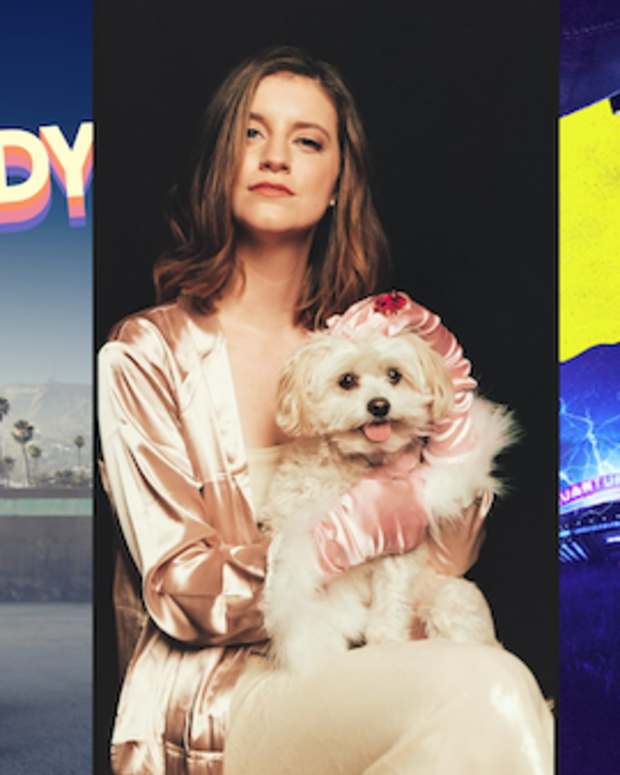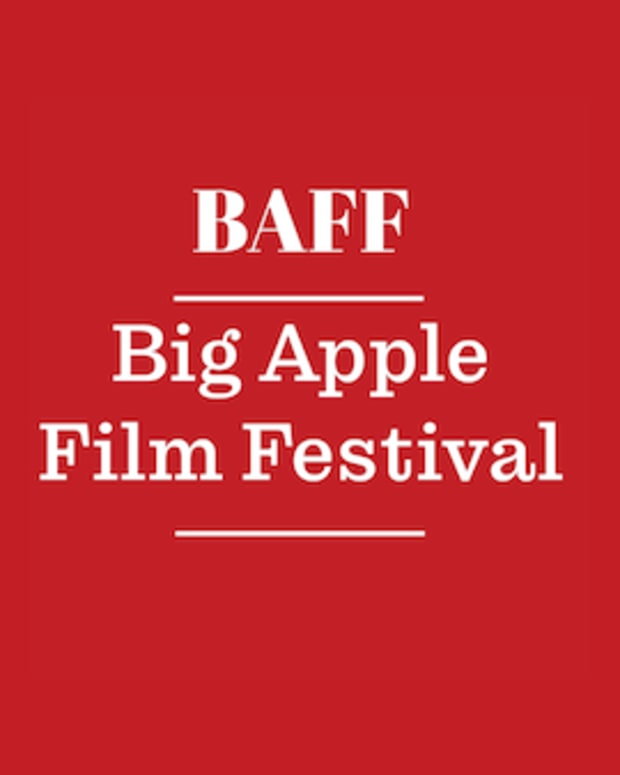The World of the AAA Screenwriter: An Interview with Zak Penn and Matt Lieberman
An open world in a video game is a place where characters can roam around beyond the normal parameters of structured games that contain levels and linear trajectories. The movie Free Guy, which was released on August 13, 2021, in the U.S., plays around with various aspects of game worlds, melding several film genres in the process. Zak Penn and Matt Lieberman are the scribes behind this freewheeling love letter to gameplay. Though they have very different perspectives, the commonality of their sense of humor and ability to invert the action narrative makes them complementary to each other’s style. The “open worlds” they create in many of their stories allow our imaginations to travel to uncharted territories, guided by their airtight storytelling.
Zak Penn has written features (Ready Player One, Free Guy, The Avengers), television scripts (Alphas), video games (Fantastic Four, X-Men: The Official Game) and comic books (Hero Worship). Matt Lieberman has focused on features with The Addams Family, Scoob! and Free Guy just a few of the films under his belt. Both are gamers and have real appreciation for visual mediums, which shines through in their vibrant, brilliant writing styles.
What first inspired you to write?
Zak Penn: I started writing short stories when I was six or seven. I started writing plays when I was ten years old. I started writing plays that got performed when I was around eleven or twelve, so I was a little bit precocious. I wrote comic books. My writing continued through high school. Then I went to Yale summer school for playwriting. In college, I kept writing. That turned into screenwriting in college.
Matt Lieberman: I have always loved writing, ever since high school. I wrote poems for the literary magazine. And I always loved movies. But for some reason I never made that connection that that could be your full-time job. I always thought you had to be a filmmaker, even though I read William Goldman. Didn’t really occur to me this was something I could do as a career until I got to NYU.
What did you study there?
ML: I studied film production. They didn’t have a screenwriting program for undergrad at the time. I took a feature writing class, and I was one of the only ones to finish a screenplay. That teacher took me under his wing and told me how to write query letters and how to get an agent…and I got the bug.
What was your first big break?
ZP: Me and my writing partner went to Wesleyan. Came up with the idea for Last Action Hero a week after I graduated. About six months after moving to L.A., we started researching action movies. We rented every action movie from the 80s. It took us three months to write the script. Then we got lucky and sold it. Then it was made. We were off to the races pretty fast.
ML: I don’t feel like I ever really had a break! Technically my first job was writing a direct to DVD movie.
What was that?
ML: Dr. Doolittle, which I was very happy to get, but I didn’t quit my day job!
What’s the difference between writing solo and collaborating?
ZP: The great thing about collaborating is it forces you to get your work done, which is 90% of the battle. Most of what separates people is their ability to follow through. When you write solo, you have to fall back on other tricks to keep you going. It’s also very lonely spending all day by yourself writing. Depends on your personality, though. Some people like it. I don’t. I prefer to see people. Creative difference is when I write alone, I tend to be far more of a perfectionist, I’m far more critical of my own work. With a writing partnership, you have to learn to accommodate the other person. There has to be a compromise between what you think it should be and what they think it should be.
What inspired you to write Free Guy?
ML: I was working on a few other assignments at the time, and it was an idea I’d had for a while, literally five years ago August. I felt stuck in my life. I knew I needed to get it out of me and got it out quickly. I wrote it as a spec. I did a draft with Ryan and Shawn. Zak came in for the final pass. When Zak called me; he was a mensch. [laughs] We talked through his ideas, which were great. Then he implemented them, then it was in production.
How long did it take you to write it?
ML: Three weeks.
Wow, quick!
ML: It came quickly, I knew what it was and much of it is still in the movie. I’m a high concept writer so to have a great idea with an ironic hook that’s thematically about something…that’s kind of my speech thought…so when I have that, it’s easier. Not that quick always means better.
Free Guy was already out there. How did you get attached to it, Zak?
ZP: I came in when Shawn Levy and Ryan Reynolds were already attached. They brought me in to make sure they weren’t losing the plot. Shawn thought I wouldn’t want to do it because I’d done Ready Player One but it’s not similar to it really. Ready Player One is more about VR than gaming. Free Guy reminds me more of Last Action Hero, just a better version of it. I knew what would help because I’d made those mistakes before. They wanted me to do it for two weeks, but it turned out to be for much longer than that.
Do you have a different process for when you’re doing a polish or rewrite as opposed to writing something from scratch?
ZP: Yeah, completely different. There’s an art to reading a script and prescribing what’s not working and proscribing what should be done to fix it. After 31 years, I’ve gotten very good at it, not to brag. [laughs] Rewriting takes some craftsmanship. When I do a rewrite, the problem solver in me comes out. And it’s usually under a time duress, which I like. When you’re writing something original, that comes from inside. Most people don’t appreciate how hard it is to create something from scratch.
[Interview with 'Ghost of Tsushima' Video Game Writer Ian Ryan]
You’ve written some video games?
ZP: Most were assignments where a company was adapting some movie and I knew some people involved. Conceiving a game was something I wanted to do, and it was hard to break into.
What are some of your favorite games?
ZP: Halo…pretty much any sports game. I played Super Hot recently. In Atari: Game Over, I talked about Adventure. I like to play, I’m not there for a great story.
ML: Zelda: Breath of the Wild…I wish I could live there! I love Spiderman, Call of Duty, I did play Grand Theft Auto. I always felt bad beating up people and it felt karmically wrong, so I never completed any of them.
What are challenges of writing a game script compared to a television or feature script?
ZP: Games scripts have evolved in the last 8 to 10 years. Games are now highly narratively sophisticated. Games live and die by their mechanics, though. Writing comic books is the most similar to writing television or features…it’s sequential art.
What film do you think would make a great game?
ZP: I think Free Guy would make a fun game because it’s a mashup of other games. I think Ready Player One is a no brainer. One of the best would be Mad Max: Fury Road.
What game would make a great film?
ML: Zelda. I like video games with ironic potential. Something unexpected, something you wouldn’t think would be a movie, like Animal Crossing.
What filmmakers or screenwriters have influenced your style?
ML: So many films of Robert Zemeckis. I love the tone of his films. He’s one of the biggest influences on me. I love Eric Roth’s work, too.
Anyone you’d like to collaborate with who you haven’t?
ZP: That’s a long list but if Martin Scorsese wanted me to work on something, I’d be there in a minute. Also, comic writer Ed Brubaker.
What are you currently working on?
ZP: A television series, Beacon 23, which is a two-character piece starring Lena Headey. It’s essentially about two people trapped at a lighthouse in outer space. It’s based on a book by Hugh Howey. It was really hard; it’s been like going back to playwriting. Also working on a sequel to Free Guy with Matt, Shawn and Ryan.
ML: I sold this pitch to Paramount with Kenya Barris producing. It’s a big, high-concept, fun popcorn movie. I’m literally just finishing up a draft now. Sold a spec to Warner Bros. It’s like Ted meets Gremlins, again with Kenya Barris producing. We’re currently trying to find the right director. I’m producing it too.
[INTERVIEW: 'The Last of Us' Writer Neil Druckmann]
What advice would you give aspiring screenwriters?
ZP: One of the most important things you can do is find a group of people whose opinions you trust who can encourage you or stop you from making a mistake. They should let you know when you’ve written something that can get you to the next step. Also, that adage about ‘write what you know’ doesn’t hold up. You should write what you feel comfortable writing. Writing what you know comes later on down the line, once you’ve pursued other things.
ML: Just concentrate on the work. All you can control is the work, all that matters is the work. If you can craft a great story, everything else will fall into place.
Free Guy is now available in Theatres.













